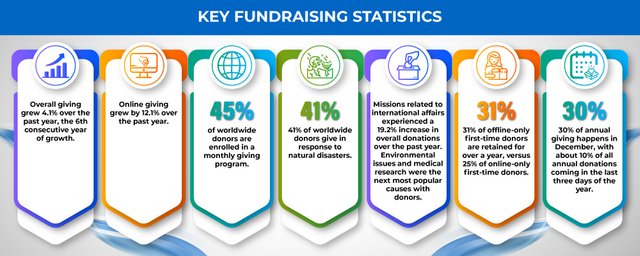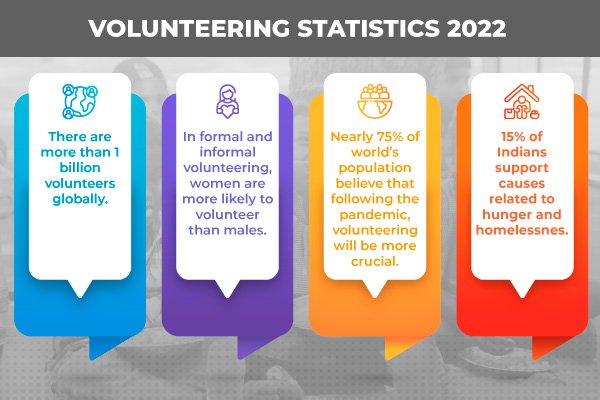
For NGOs, the beginning of a new year is a fantastic moment to assess their performance thus far and make ambitious plans for the future. Making resolutions for the organisation may be a great motivator and helps get the most out of the upcoming year. Here are some resolutions that a non-profit organisation can make for a fulfilling 2023.
- Fundraising: The majority of NGOs rely on a steady flow of funding to support their good deeds. The short- and long-term success of the fundraising efforts depends on the techniques used.
• Donor Recognition Programme: By thanking donors, you can engage your current supporters and encourage them to make recurring donations. Donor recognition programmes draw attention to the individuals who assist your organisation in realising its impact, both publicly and privately.
• Giving staff incentives and thanking donors significantly improves fundraising activities. Utilise a peer-to-peer fundraising platform, which includes an event/campaign microsite and an unlimited number of personal fundraising sites, to carry out a fruitful grassroots campaign. Each supporter can create their own fundraising page using this kind of software, which includes personal appeals for help, images, videos and fundraising trackers.
• For some non-profit organisations, changing public policy takes precedence over earning money. The most reliable strategy to influence policy changes with politicians at all levels of office is to use public opinion as a lever.

2.Volunteering: Strategic community collaborations have been of major importance for many charity organisations. To keep these connections going, make time to volunteer inside those community partner groups!
This is your time to get to know your neighbourhood partners better and demonstrate your concern for their cause. You'll meet community folks they serve as well as their supporters and advocates when you volunteer with partner organisations!
Being a volunteer is the best method to attract others to it. Additionally, collaborating on volunteer projects with your community partners not only demonstrates your kindness and dedication to the relationship, but it also allows your organisation's mission to flourish in the neighbourhood.

- Social Volunteering: Virtual or online volunteering typically refers to charitable endeavours carried out via a computer, smartphone, or other Internet-connected device. Volunteers can support a cause without physically being present at an NGO office or community by bridging geographical and artificial divides. Key benefits include:
- Working comfortably from your home, business, college, or while travelling.
- Using a gadget that you are most familiar with.
- Safety, security, and convenience are all at your fingertips.
- Since virtual volunteering largely makes use of your skills, the impact frequently lasts longer.
Apart from virtual volunteering, you can also become a promoter of an NGO by talking about them on social media platforms. Most of the NGOs have their own websites and social media handles on platforms like Facebook, Twitter, LinkedIn, YouTube, Instagram, etc. Spread the word about their work by sharing about their work to your friends, families and relatives.
- Donation: There are various tactics you can use to improve donation effectiveness. To help better grasp the process of seeking donations, some of them are more successful than others. These tactics consist of:
- Optimisation for mobile
- Dependable branding
- Storytelling
- Several options for matching presents/grants
Make A Bigger Difference This Year
Whether you are an NGO or an individual donor, you can still make a difference in the lives of people by promising to do something different this year. Feed meals to people who are in need of nourishment so that they can concentrate on other tasks in life, like making a living for the bread-winning adults or concentrating in what is being taught in class for malnourished children.
Support an NGO like Akshaya Patra
The Akshaya Patra Foundation is an NGO that runs India’s biggest Mid-Day Meal Programme by serving hot and nutritious meals to over 2 million Government school children every day. The Foundation runs its operations through two kitchen models: Centralised Kitchens, which are suitable for urban and semi-urban locations, are mostly mechanised and employ innovative technology to cook meals for thousands of children within a few hours. Decentralised Kitchens are set up in areas that are not easily accessible and employ women of Self Help Groups in that particular area for the cooking process. The Foundation operates through its 65 kitchens spread across 14 states and 2 union territories of India.
This New Year, your generosity and support can feed the hungry with Akshaya Patra. Donate for children, now!